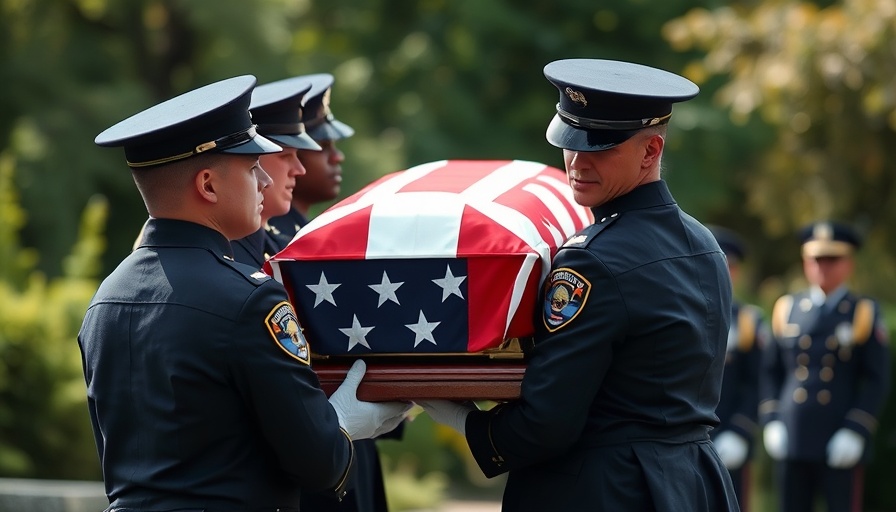
The Weight of Loss: A Cop's Perspective
As law enforcement officers stand in solemn respect beside the flag-draped casket of a fallen comrade, there's a shared internal struggle that resonates deeply within their ranks. “There, but for the grace of God, go I” encapsulates the burden of risk that police officers carry daily. It serves not only as a reminder of their vulnerabilities but also as a call to honor those who have paid the ultimate price in service to their communities.
The Unspoken Challenge of Grieving
Grieving the loss of a fellow officer is a deeply personal journey, one that lacks a universal roadmap. Each officer processes grief differently, navigating through a painful spectrum of emotions without the benefit of a prescribed guide. The police academy may prepare officers for physical confrontations, but it falls short when it comes to teaching how to cope with the mental and emotional scars left by loss.
Transformative Moments and Reflection
The horrific events of September 11, 2001, marked a pivotal moment for many police departments, particularly as they faced a dramatic escalation in line-of-duty deaths. For one officer, a realization hit hard when they lost 37 of their comrades in a mere matter of minutes. This stark reality prompted a shift in mindset: the previous sense of invincibility shattered, giving way to an acute awareness of danger even in situations previously deemed routine, such as entering a building on fire.
The Ongoing Challenge of Officer Wellness
In light of tragedies like 9/11, police departments are increasingly recognizing the need for comprehensive wellness programs that address the psychological impact of such losses. Officer mental health initiatives have gained traction, focusing on resilience and recovery strategies that can help mitigate the effects of trauma. These programs not only foster healthier coping mechanisms but also play a crucial role in retaining officers who might otherwise leave the force after experiencing profound grief.
Building Trust through Community Engagement
Beyond personal healing, fostering community trust becomes equally critical. The connections between police officers and the communities they serve are paramount, particularly in light of recent calls for police reform and enhanced accountability. As departments implement innovative policing approaches, which include the use of technology and transparency efforts, they are creating opportunities for more meaningful interactions with the public. The aim is not only to prevent crime but also to build a collaborative safety culture that reassures citizens and promotes mutual respect.
A Future with Hope and Resilience
Although life may never revert to a pre-tragedy normal, there lies hope in the collective resilience of law enforcement. As officers grapple with the sorrow of loss, they simultaneously look for ways to honor their fallen friends through service to the community. By actively engaging in public safety initiatives, training programs, and building trust, they forge a path forward. The lessons learned from grief and trauma may very well shape the future of policing, allowing for a landscape where community and officer wellness can coexist.
Moving Forward Together
It is vital for police departments to embrace the evolving landscape of law enforcement with compassion. By supporting officer mental health, engaging openly with communities, and utilizing modern policing strategies, we can strive for a safer and more just society. As we remember the sacrifices of those who came before, we must also commit ourselves to a future marked not only by vigilance and preparedness but also by understanding and support for each other's journeys.
 Add Row
Add Row  Add
Add 

 Add Element
Add Element  Add Row
Add Row 




Write A Comment